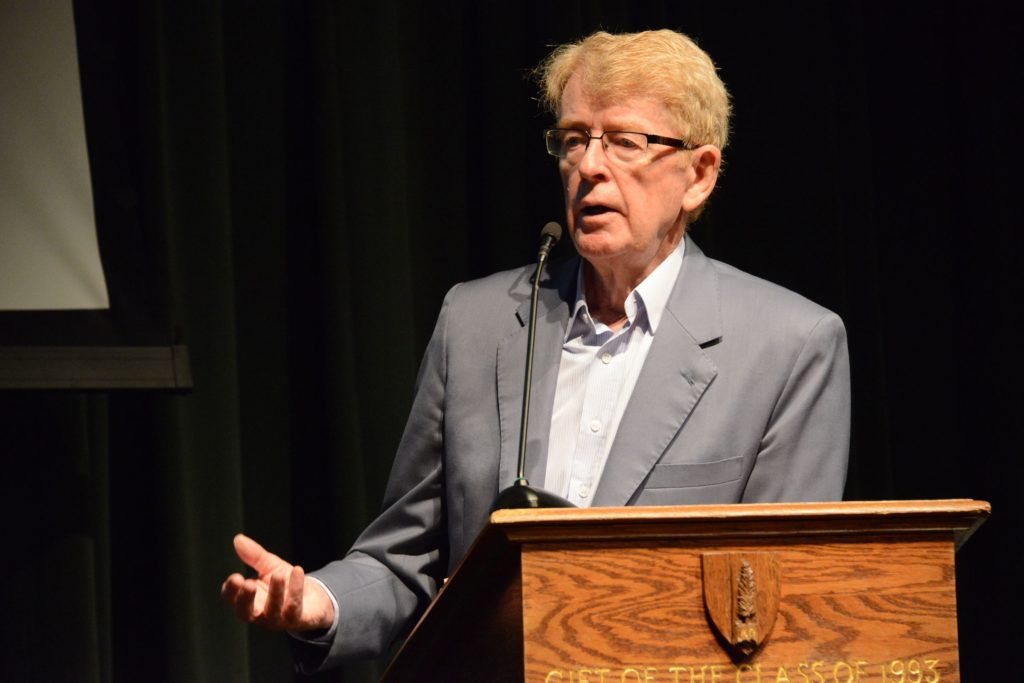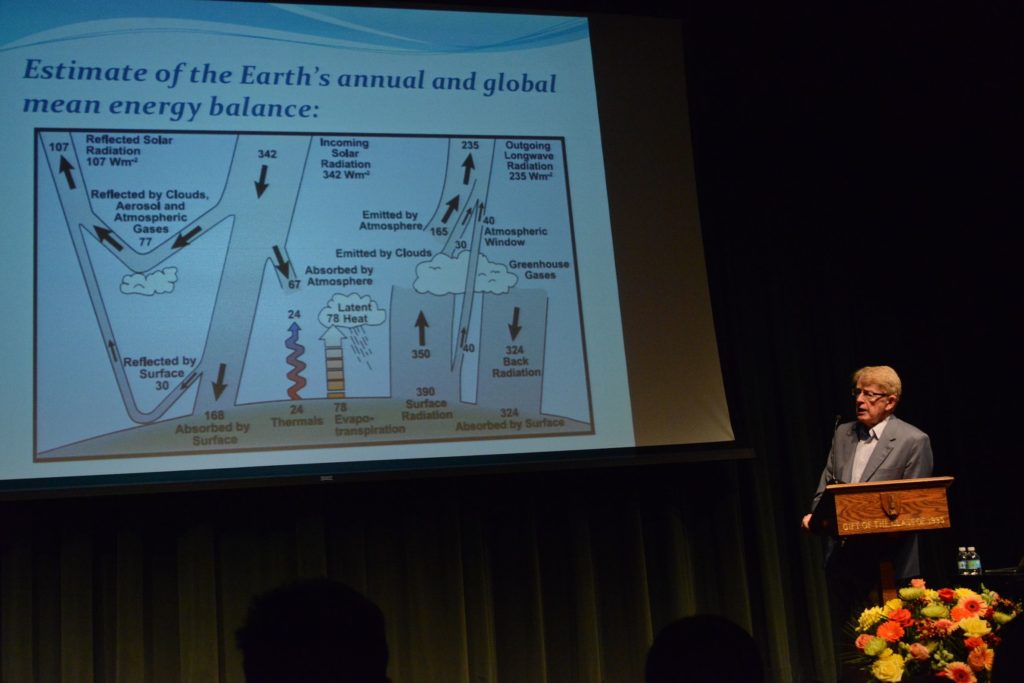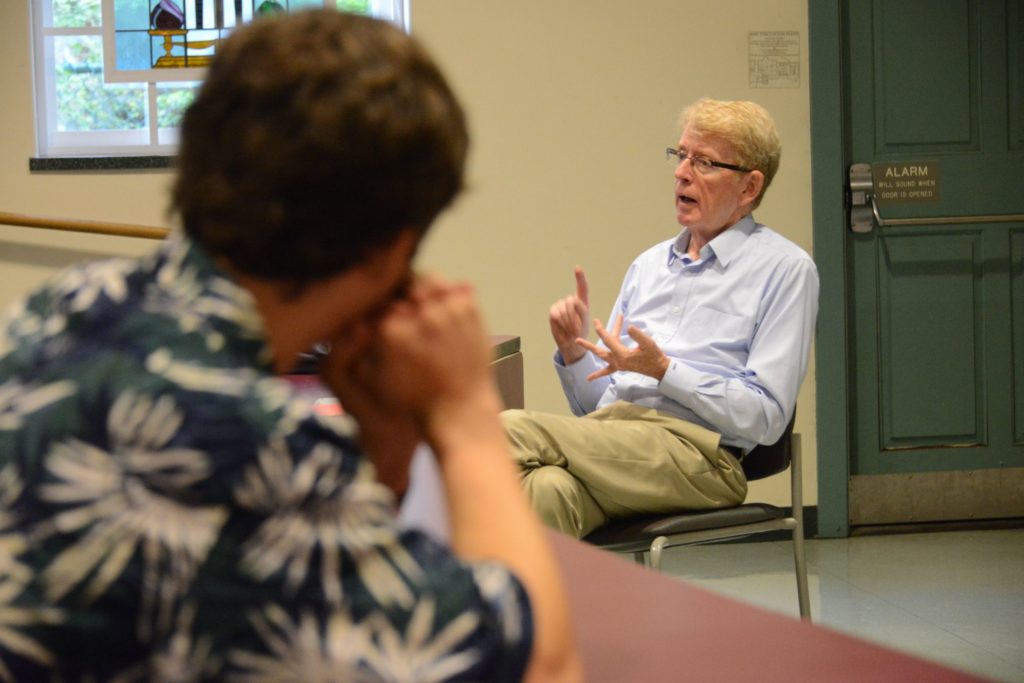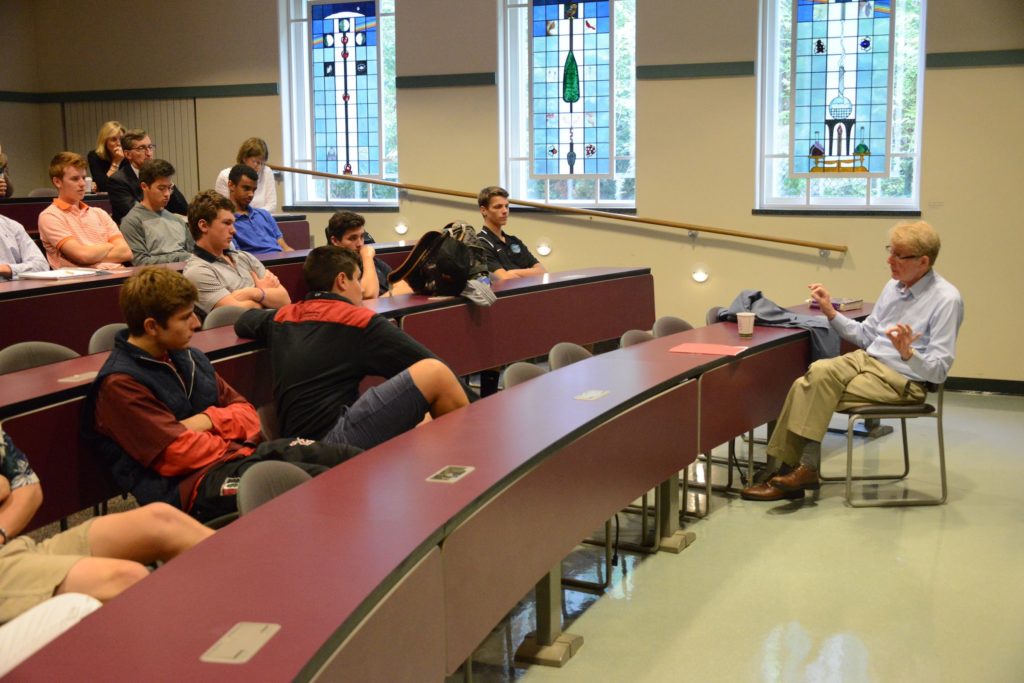An Education on Climate Science From Dr. Mike McElroy
Curiosity, creativity, and commitment: This is the recipe that Dr. Michael McElroy—eminent scholar of environmental studies—suggests to combat the effects of climate change. The first of four Smith Visiting Scholars to discuss the science and policies of climate change this year, Dr. McElroy has been devoted to this teaching and research at Harvard for 47 years.
To begin his talk, Dr. McElroy explained the Earth’s “energy budget”—the dynamics of energy derived from the sun, and how that energy is absorbed, reflected, and distributed. He explained how the presence of water vapor in our atmosphere affords us a climate that sustains life on Earth, and how increased carbon dioxide in the atmosphere alters climate conditions.
Basically, he explained, the Earth is absorbing more energy than it is reflecting back, increasing the planet’s temperatures, especially in our oceans. Heat accumulated in deeper parts of the ocean will stay warmer longer, contributing to changing ecological zones, rising sea levels, and more powerful storms.
Possible solutions, Dr. McElroy suggests, include a concerted global shift from our reliance on coal and natural gas to renewable forms of energy, such as wind and solar. That would involve an investment in our country’s infrastructure to support and improve transmission of that energy, and an ability to effectively store energy derived from variable sources. “Historically,” Dr. McElroy says, “the United States and China have been the world’s largest contributors to greenhouse gas emissions, and it will depend on those countries to show leadership and commitment to combatting the rise of CO2 in Earth’s atmosphere.”
“We’re at a critical time on this planet, and meaningful changes will have to be a collective investment, globally and with international connectivity,” says Dr. McElroy, who met with students and faculty after his presentation to answer questions and continue the conversation.
After serving for several years as the Abbott Lawrence Rotch Professor of Atmospheric Sciences, Dr. McElroy was named the Gilbert Butler Professor of Environmental Studies. He has also served as Director of Harvard’s Center for Earth and Planetary Physics, as founding Director of the Harvard University Center for the Environment, and as founding Chair of the Department of Earth and Planetary Sciences. He currently leads Harvard’s China Project, an interdisciplinary research program on China’s atmospheric environment, energy system, and economy, collaborating across schools of Harvard and partner universities in China.
Dr. McElroy has been honored by several prestigious organizations, and published more than 250 journal articles, written or edited six books, and authored more than 30 articles in the well-known journals Nature and Science. He earned his B.S. and Ph.D. degrees in Applied Mathematics at Queen’s University, Belfast, Northern Ireland.
Over the course of this year, R.L. students and faculty will hear from four prominent thought leaders working in the field of climate science and climate change policy, including Dr. Anthony Leiserowitz, Professor Maria Ivanova, and former administrator of the EPA, The Honorable Gina McCarthy.
In order to promote greater understanding of global issues, alumnus Robert Smith and his wife, Salua, established at Roxbury Latin the Robert P. Smith ’58 International Fellowship. It enables the School to bring visiting scholars to campus each year—individuals who enhance our curricula with insightful perspectives on our increasingly complex world. Past speakers have addressed topics ranging from modernization in China and India to World War I; economic globalization in Africa to Hispanic culture and literature.




